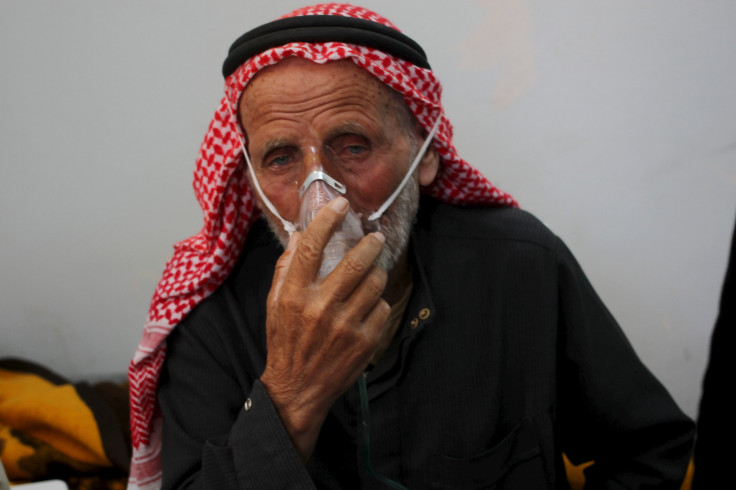US Calls For UN Probe On Syria Chemical Weapon Attacks

The United States revealed a draft resolution on Thursday that calls for United Nations Secretary General Ban Ki-moon and the international chemical weapons watchdog to create a mechanism that would hold responsible those who carried chemical weapon attacks in Syria. The resolution was circulated to the 15-member council after over two months of talks with Russia on how to assign responsibility for attacks that used chlorine gas, sarin or other chemical weapons.
"Given the frequent allegations of chlorine attacks in Syria, and the absence of any international body to identify the perpetrators of chemical weapons attacks, it is critical that the U.N. Security Council find consensus and set up an independent investigative mechanism," U.S. Ambassador to the United Nations Samantha Power said, according to the Associated Press.
The resolution calls to set up a "Joint Investigation Mechanism" that would be required to "identify to the greatest extent feasible, individuals, entities, groups, or governments who were perpetrators, organizers, sponsors or otherwise involved in the use of chemical weapons in Syria," Agence France-Presse reported, citing the draft.
If the resolution is adopted, Ban would be required to submit his recommendations for the Joint Investigation Mechanism to the Security Council within 15 days, and work with the Organization for the Prohibition of Chemical Weapons (OPCW). The council would then be expected to respond to his proposal within five days. Ban would also be required to report on the committee's progress to the council once a month, and the team's first report would need to be produced within 90 days, according to the draft resolution.
The move comes after repeated reports of chemical attacks in Syria, despite the government agreeing to destroy its reserves in 2013. While the OPCW has overseen the destruction of most of that stockpile, it has reported that chlorine gas has been "systematically and repeatedly" used as a weapon in the conflict. The watchdog is not mandated with identifying the responsible parties.
A 2013 attack using sarin gas on the Syrian capital Damascus' suburb of Ghouta, which was blamed on the Syrian regime, was internationally condemned. U.S. President Barack Obama warned at the time that if Damascus was found to be using chemical weapons against its own people, that would be a "red line," which could trigger military action.
However, the incident ended with Russia and the U.S. agreeing on a plan to dispose of Syria's chemical weapons stockpile, precursors and manufacturing equipment. Russia supports the embattled government of Syrian President Bashar Assad, while Washington opposes his regime. Damascus has maintained that it did not carry out the Ghouta attack, and has blamed the chlorine attacks on terror groups.
While Syria's declared stockpile of 1,300 metric tons of chemicals has been destroyed, the OPCW is investigating the possibility that there may be hidden or undeclared stockpiles or manufacturing centers. Unlike sarin or ricin, chlorine is not banned because it is commonly used as a disinfectant, but using the toxic chemical as a weapon is prohibited under the 1997 Chemical Weapons Convention, to which Syria is a signatory.
© Copyright IBTimes 2024. All rights reserved.





















